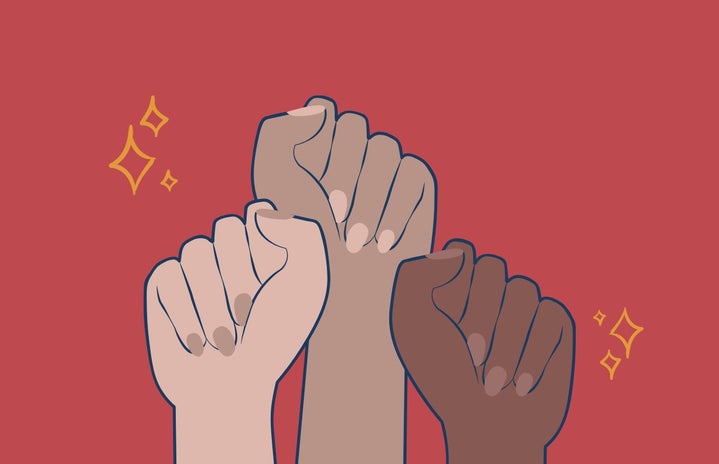In honor of National Native American Heritage Month, I was inspired to write about activist Elizabeth Peratrovich. Reading her story online, I felt empowered by her ability to break boundaries politically and culturally as a woman. Peratrovich stood up against discrimination and fought for equitable legislation that led to a better future for all Native Americans. According to the Library of Congress, Peratrovich was born in Alaska on July 4, 1911, as a member of the Tlingit Nation – a community estimated to have been populating the region for the past 10,000 years.
She was a bright girl, knowledgeable in both English and the Tlingit language and experienced normalized segregation in everyday life. By the time she entered high school, Peratrovich was able to attend one of the first integrated schools in the area – where she was able to meet her future husband, Roy Scott Peratrovich. They moved to Juneau, Alaska in 1941 and held active leadership positions in nonprofit organizations like the Native Alaskan Sisterhood which fought against Native American racism. During the same year, the United States was also entering World War II. It was expected that every American shows support for the war effort. Many Native Americans showed their support by enlisting in the military, but were still segregated across communities with “No Natives Allowed” signs. Peratrovich saw one of these signs outside a local business and immediately wrote a letter to the Governor of Alaska, Ernest Gruening. She wrote that it was an “outrage,” that people do not realize how “Native boys are just as willing to lay down their life as the white boys,” to protect the very freedom they get to enjoy.
Peratrovich began her journey campaigning for an anti-discrimination bill within the state with the support of Governor Gruening. In 1943, this bill failed to pass the House of Representatives. When the bill was brought back to Congress for approval in 1945, there was an Alaskan senator named Allen Shattack who strongly opposed the bill. According to the Library of Congress, during the Senate debate he said, “the races should be kept further apart,” and, ”these people, barely out of savagery, want to associate with us whites with 5,000 years of civilization behind us?” Fun fact, Peratrovich was known to knit during legislative hearings to pass the time. Upon hearing Shattack, she placed her needles down and responded, “Do your laws against larceny and even murder prevent those crimes? No law will eliminate crimes but at least you as legislators can assert to the world that you recognize the evil of the present situation and speak your intent to help us overcome discrimination.”
The bill was successfully approved in Congress and signed by Governor Grueing on February 16, 1945. From that day on, it became the United States’ first anti-discrimination state law. This bill stated that “All citizens shall be entitled to the full and equal enjoyment of all accommodations, advantages, facilities and privileges […].” After Peratrovich successfully fought for equal civil rights in Alaska, she lived to see the beginning of the Civil Rights Movement, the fight against discrimination towards African Americans. However, she later passed away on December 1, 1958 from breast cancer.
President Lyndon B. Johnson signed the Civil Rights Act of 1964 which banned discrimination based on sex, color, or origin across the U.S. This act solidified the legacy of all civil rights activists like Peratrovich, because equal treatment was finally recognized as a right. Alaskans also remember every February 16th as Elizabeth Peratrovich Day. In 2024, Alaska State Governor Mike Dunleavy stated that Peratrovich, “will always be a woman of distinction, exceptional courage, and a beacon of hope to many.”
So how can you celebrate and support National Native American Heritage Month? First Nations Development Institute officer, Marisa Page says it is important to go “beyond the celebration to learn about Native issues.” Be aware of what is happening around you and question what actions will help or harm Native communities. Continue to reflect and cherish Native origins while doing the things you enjoy. Even beyond the month of November, you have the power to keep the spirit of Native communities alive by staying in touch with history and continuing to learn from the Native American experience.


